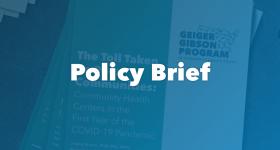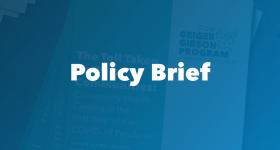73. Widening Holes in the Safety Net: Community Health Centers at Risk
A new policy brief examines community health center operating margins from 2020 - 2024 as health centers' experienced slimmer margins, resulting in more than half of states with net losses last year. With recently policy changes ready to take effect, the expiration of the ACA's enhanced premium tax credits , Medicaid work requirements, and changes in family planning care and care for immigrant communities could contribute to health center closures and reductions in patients served.




